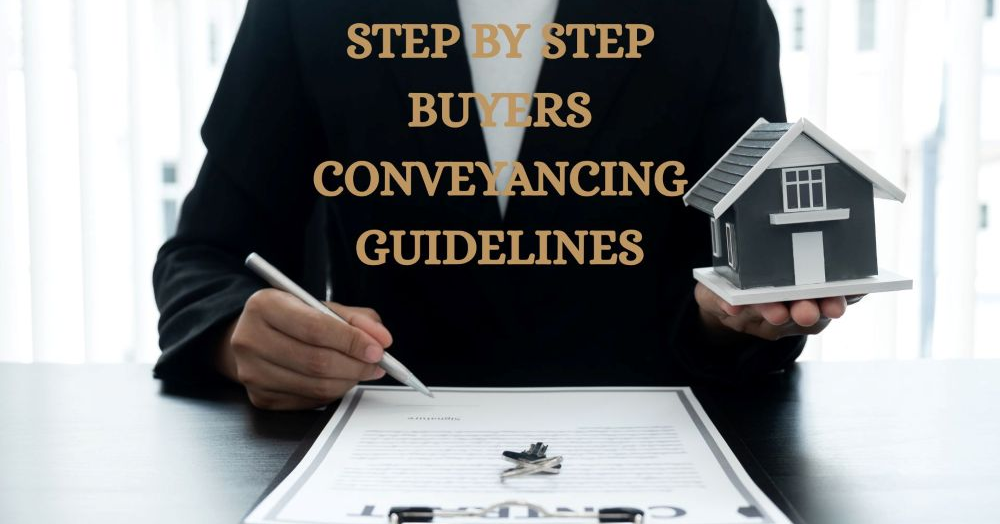
A Simple Buyer's Guide to Conveyancing from Offer to Completion
Understanding the conveyancing process is crucial for anyone buying or selling property in the UK. This guide demystifies each stage, from offer acceptance right through to the exciting moment of completion.
The conveyancing process can often feel like a labyrinth of legal jargon and paperwork. However, with a clear understanding of each stage, you can navigate it with confidence. As your estate agent, we're here to guide you, but knowing what to expect from your solicitor is invaluable.
The Initial Stages: Offer Acceptance to Instruction
Once an offer is accepted, the first critical step is to formally instruct a solicitor or licensed conveyancer. This professional will handle all legal aspects of transferring property ownership. It's wise to research and choose a solicitor early, as delays here can impact the entire timeline.
Your estate agent will typically have established relationships with reputable local solicitors who are known for their efficiency and reliability. These recommendations are based primarily on the quality of communication, ensuring they are readily contactable, and the typical timescales for completing transactions. Engaging a non-local solicitor, particularly one who can only be reached by phone, can often result in delays and complications during critical stages such as exchange and completion. In some instances, this may even lead to a transaction falling through.
Solicitor's Role and Initial Paperwork
Your solicitor will begin by sending out a 'client care letter' detailing their terms of engagement, fees, and the scope of their work. You'll also complete various forms, including property information forms (TA6, TA7, TA10 for sellers) and money laundering checks. For buyers, your solicitor will request funds for initial searches.
- Key Milestones: Searches, Enquiries, and Mortgage Offers (Weeks 3-8)
- Property Searches
- For buyers, your solicitor will conduct a series of essential searches to uncover any potential issues with the property. These typically include:
- Local Authority Search: Reveals planning permissions, building control history, and any enforcement notices.
- Environmental Search: Identifies potential land contamination, flood risk, and other environmental factors.
- Water and Drainage Search: Confirms connections to public sewers and water mains.
- Chancel Repair Liability Search: Checks if the property is liable for church repair costs (less common but important).
The cost for these searches can vary but typically ranges from £250 to £450, depending on the location and specific searches required.
Raising Enquiries
Based on the search results and the seller's property information forms, the buyer's solicitor will raise enquiries with the seller's solicitor. These questions aim to clarify any ambiguities or concerns about the property. This back-and-forth can take time, as detailed responses are often needed.
Mortgage Offer
If you're a buyer requiring a mortgage, your lender will conduct their valuation and, assuming all is satisfactory, issue a formal mortgage offer. This is a crucial document, as conveyancing cannot proceed to exchange without it.
Exchange of Contracts: The Point of No Return
Once all enquiries are satisfied, searches are clear, and a mortgage offer is in place (for buyers), both parties are ready to exchange contracts. This is the legally binding stage where the sale and purchase become official. A completion date is agreed upon, and the buyer pays a deposit (typically 10% of the purchase price). From this point, neither party can pull out without significant financial penalties.
Completion: Ownership Transfers
On the agreed completion date, the remaining balance of the purchase price is transferred from the buyer's solicitor to the seller's solicitor. Once the funds are received, the seller's solicitor will authorise the release of keys, usually from the estate agent. Congratulations, you've completed the transaction!
Post-Completion Formalities
After completion, the buyer's solicitor will handle the payment of Stamp Duty Land Tax (SDLT) to HMRC and register the new ownership with the Land Registry. For leasehold properties, they will also notify the freeholder or management company of the change in ownership.
Approximate Conveyancing Costs & Timelines
Understanding the financial and time commitments is key. Here's a summary:
Solicitor Fees: Generally, you can expect to pay between £800 and £2,000 plus VAT for their professional services. This figure does not include disbursements (third-party costs).
Disbursements: These are costs paid to third parties by your solicitor on your behalf. They include:
- Searches: £250 - £450 (as mentioned above).
- Land Registry Fees: Varies based on property value, typically £20 - £910.
- Stamp Duty Land Tax (SDLT): This is a significant cost for buyers, calculated on a tiered system based on the property's purchase price. Exemptions and different rates apply for first-time buyers and additional properties. You can use the Government's SDLT calculator for an estimate.
- Bank Transfer Fees: Typically £25 - £50 per transfer.
Overall Timeline: While every transaction is unique, the entire conveyancing process typically takes between 4-6 months from offer acceptance to completion. This can be shorter for cash buyers or longer for complex chains or leasehold properties.
Understanding each stage of the conveyancing process, along with its associated costs and timelines, empowers you, whether you're buying or selling. While it can be complex, your estate agent and solicitor are there to ensure a smooth and successful transaction.
If you require any homebuying advice, please get in touch using the form above.
